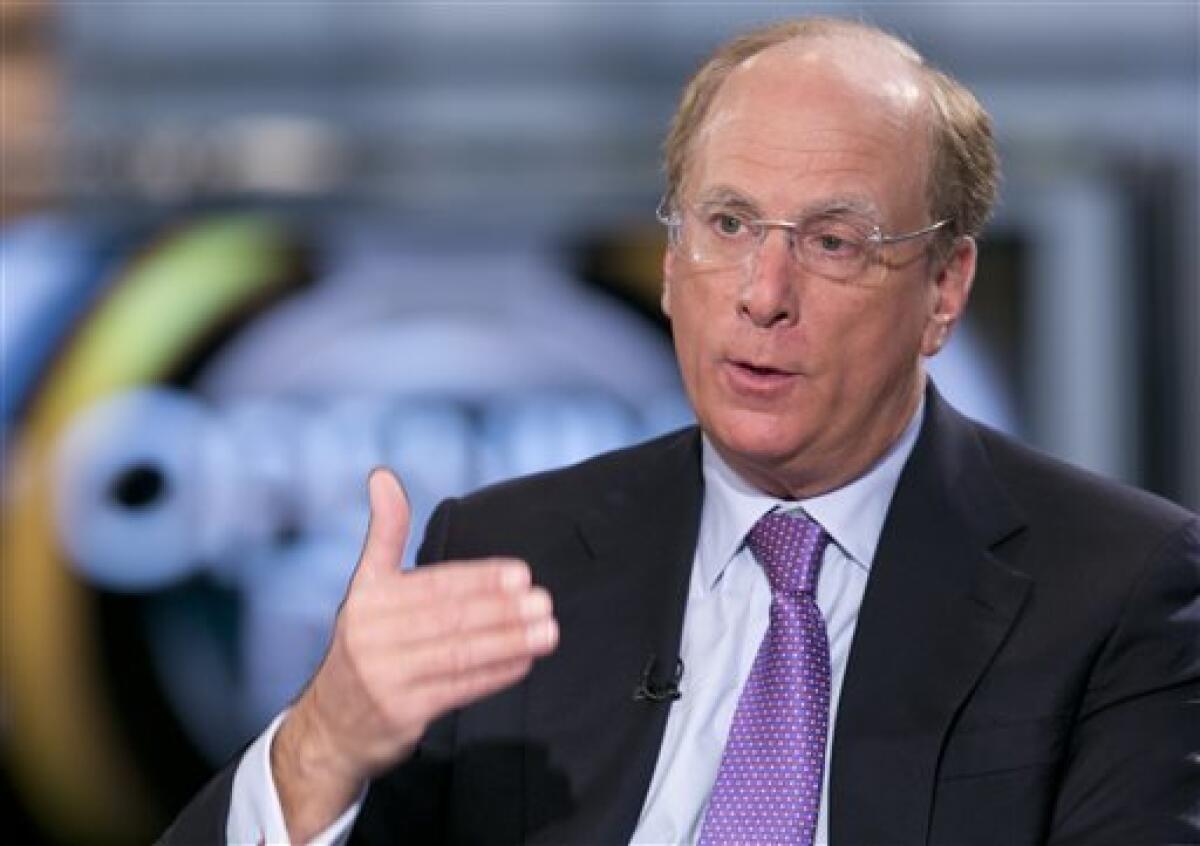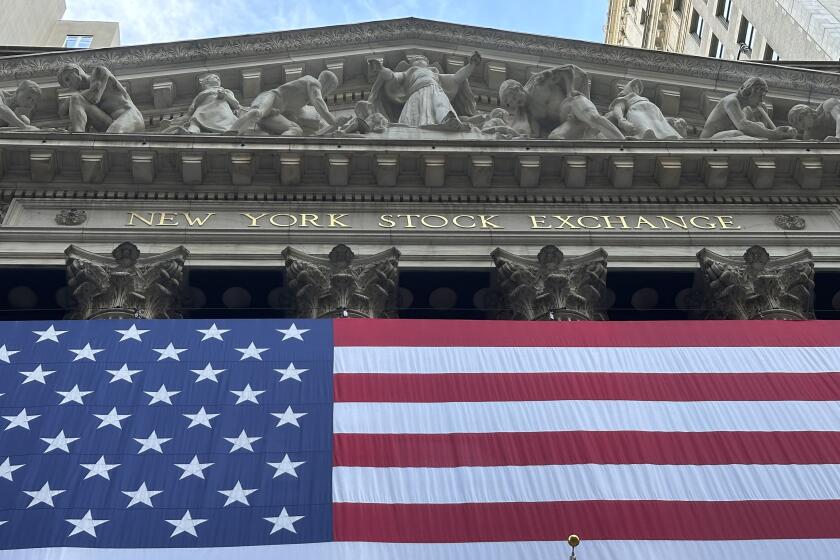News Analysis: BlackRock just became a champion of green investing, but its activism has limits

BlackRock Inc., the world’s biggest fund manager with $7 trillion in assets, said Tuesday it plans to “place sustainability at the center of our investment approach.” Chairman and CEO Larry Fink said in his annual letter to corporate executives that BlackRock will take steps to address the issue across the thousands of companies in which it invests.
Fink wrote that the risks posed by rising world temperatures will affect “both our physical world and the global system that finances economic growth.” BlackRock said it is seeking a tenfold increase in the assets dedicated to sustainable investments in the coming decade, to $1 trillion from about $90 billion currently.
As environmental, social and governance issues become more pressing, especially for younger savers, it’s a savvy business move that will pressure peers to follow suit. But there’s a problem. With about two-thirds of the money it manages allocated to index-tracking funds, the issue of how to harness the resources in passively managed products — the bulk of which command fees that are too low to finance costly and time-consuming engagement with company boards — remains unaddressed.
Today BlackRock funds hold a 6.7% stake in Exxon Mobil Corp., for instance, as well as 6.9% in Chevron Corp. and 6% in Glencore Plc. And in all likelihood, they’ll keep holding them because much of that is held by funds that passively track market indexes, rather than actually pick stocks or bonds.
BlackRock said it would undertake a number of steps to bring climate considerations to its passive funds. The firm will double its lineup of sustainable exchange-traded funds to about 150, and pressure index providers to create sustainable versions of their flagship indexes, according to a client note outlining the changes.
In his letter, Fink said the financial world is undergoing “a fundamental reshaping” as the climate crisis becomes more apparent. “Our investment conviction is that sustainability- and climate-integrated portfolios can provide better risk-adjusted returns to investors,” he wrote.
BlackRock’s move comes as the world’s fund managers find themselves at the forefront of populist pressure to do more to save the planet. As the world’s principal allocators of capital, money managers are being scrutinized like never before — and are being found wanting in many cases.
BlackRock’s annual investment stewardship report, for example, shows that in the one-year period ending in mid-2019, it interacted with 256 companies on “environmental risks and opportunities.” While more than 80% of those discussions were on climate-specific risks, the firm voted in favor of just four shareholder proposals pressing U.S. companies to implement policies designed to prevent the average global temperature from increasing by more than 2 degrees Celsius. Hence the criticism.
Nonprofit group Majority Action examined the U.S. voting record of 25 of the world’s biggest asset managers and what it found wasn’t pretty. BlackRock and Vanguard Group Inc. voted against at least 16 climate-related proposals which would have passed with their backing, a report the group published in September found.
Earlier this month, BlackRock joined Climate Action 100+, a group of more than 370 fund managers that champions engagement with companies to limit their greenhouse gas emissions. The organization now has $41 trillion of firepower to rain down on companies that are deemed to be hurting the planet.
But the trillions of dollars in the growing category of exchange-traded funds, or ETFs, are unlikely to participate in that activism. So far, ETFs designed to cater to investors who prioritize environment, social and corporate governance, or ESG, factors have about $20 billion in assets spread across more than 100 products, with more than 30 such ETFs introduced in the last two years, according to data compiled by Bloomberg Intelligence.
While that ESG subset is dwarfed by the $6 trillion of global assets that ETFs have garnered in recent years, it attracted a record $8 billion of inflows in 2019, a trend that’s likely to continue accelerating as the climate crisis continues to attract headlines — and dollars.
In an interview with the New York Times, Fink acknowledged that the firm’s passive index funds aren’t able to ditch the shares of companies it deems not to be acting in line with its views on sustainability. Moreover, he said in his letter that governments will dictate the speed at which the world moves to a lower-carbon economy. “Under any scenario, the energy transition will still take decades,” he wrote.
BlackRock’s size puts it in a delicate position: Operating in more than 30 countries, and as one of the biggest holders of most U.S. publicly traded companies, its clients include large sovereign wealth funds, state pension plans and financial advisors with viewpoints that don’t necessarily align on what to do about climate change and social justice issues. And BlackRock is the largest outside investor in the state-owned oil giant Saudi Aramco, according to Bloomberg.
Also, while BlackRock said it will cut exposure to thermal coal, that doesn’t mean it’s selling out of the biggest producers. BlackRock’s discretionary active investment portfolios will sell out of all companies that get more than 25% of sales from thermal coal, Fink wrote. However, the revenue threshold means that large, diversified miners -- which also rank among the largest coal producers -- won’t be affected. Glencore, for instance, is the single biggest coal shipper, mining about 130 million tons last year. Yet its thermal coal revenue accounted for less than 10% of the total, thanks to the contribution from its giant trading operations. Major coal producers Anglo American Plc and BHP Group also comfortably escape the cap.






